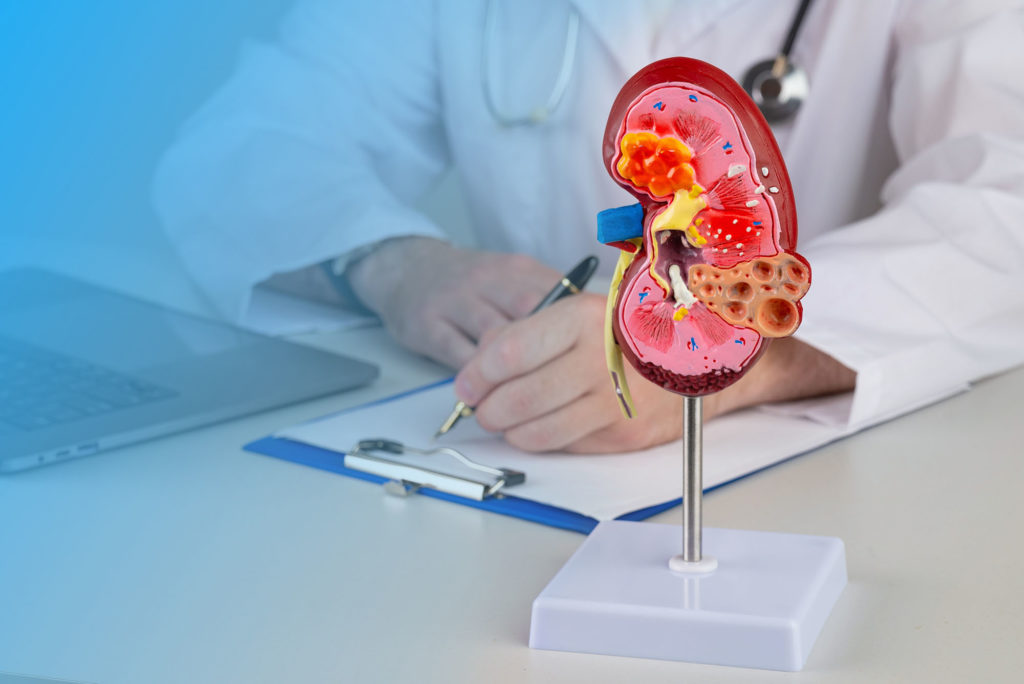Renal Artery Ultrasound and Abdominal Aortic Ultrasound

The Cardiology Center of Acadiana offers renal artery ultrasound and abdominal aortic ultrasound
With our renal artery ultrasound and abdominal aortic ultrasound testing, you can rest assured that you are receiving the highest quality of care. Our advanced medical technology and experienced technicians have been acclaimed by patients who have undergone these ultrasounds for providing the most accurate, up-to-date results. Rest assured that we will strive to provide you with a comfortable and stress-free experience throughout the entire process.
Schedule a consultation today to learn more about renal artery ultrasound and abdominal aortic ultrasound.
What are Renal Artery Ultrasound and Abdominal Aortic Ultrasound?
Renal artery ultrasound is a non-invasive imaging technique used to visualize the blood flow in the renal (kidney) artery. On the other hand, abdominal aortic ultrasound is a safe and fast procedure used to measure the size of the abdominal aorta, which is the main artery in the body. Both of them can help diagnose blockages or irregularities in the artery, as well as other problems such as aneurysms and stenosis.
Though both procedures don’t directly assess your heart’s condition, they can provide valuable insight into your cardiovascular system. With information from a renal artery ultrasound or abdominal aortic ultrasound, our cardiologist can determine if there are any blockages or narrowings in your aorta. If there is, this can indicate underlying cardiovascular disease and the need for additional testing or treatment.
At the Cardiology Center of Acadiana, we offer both renal artery ultrasound and abdominal aortic ultrasound. Our medical team is trained to perform these procedures quickly, accurately, and safely — allowing us to provide the best care for our patients.

Important Information to Know About Renal Artery Ultrasound and Abdominal Aortic Ultrasound
Here is important information to know about renal artery ultrasound and abdominal aortic ultrasound tests:
Before the Procedure
Follow the specific instructions given by your doctor, which may include fasting and avoiding caffeine. Don’t forget to inform the doctor about any allergies you may have, medications or herbal supplements you are taking, and any other medical conditions you may have.
During the Procedure
During a renal artery ultrasound, a device called a transducer is used to create an image of the kidney and its blood vessels. During an abdominal aortic ultrasound, sound waves are used to detect narrowing or aneurysms of the aorta. Both procedures usually take about 20–30 minutes.
After the Procedure
You can usually resume your normal activities after the procedure. Make sure to follow any advice and recommendations given by your healthcare provider regarding any restrictions on activity. If you have any questions or concerns about the procedure, make sure to ask the specialist performing the tests.
Who May Need a Renal Artery Ultrasound and an Abdominal Aortic Ultrasound?
Your doctor may recommend a renal artery ultrasound and/or an abdominal aortic ultrasound if you have symptoms or risk factors for conditions affecting the kidneys or the blood vessels in the abdomen, including:
- High blood pressure
- Family history of aortic aneurysm
- Kidney disease
- Smoking or other forms of tobacco use
- Kidney stones
- Hypertension in pregnancy
Your doctor may also order one of these tests if you are undergoing certain surgeries, such as a kidney transplant, or if you are experiencing unexplained abdominal pain.
Schedule a Consultation Today
Find out if you may need a renal artery ultrasound or an abdominal aortic ultrasound by scheduling a consultation at the Cardiology Center of Acadiana today. With our expert medical care, we can evaluate your condition and determine if ultrasound imaging is the right choice for you.
Contact the Cardiology Center of Acadiana to learn more about these tests.


